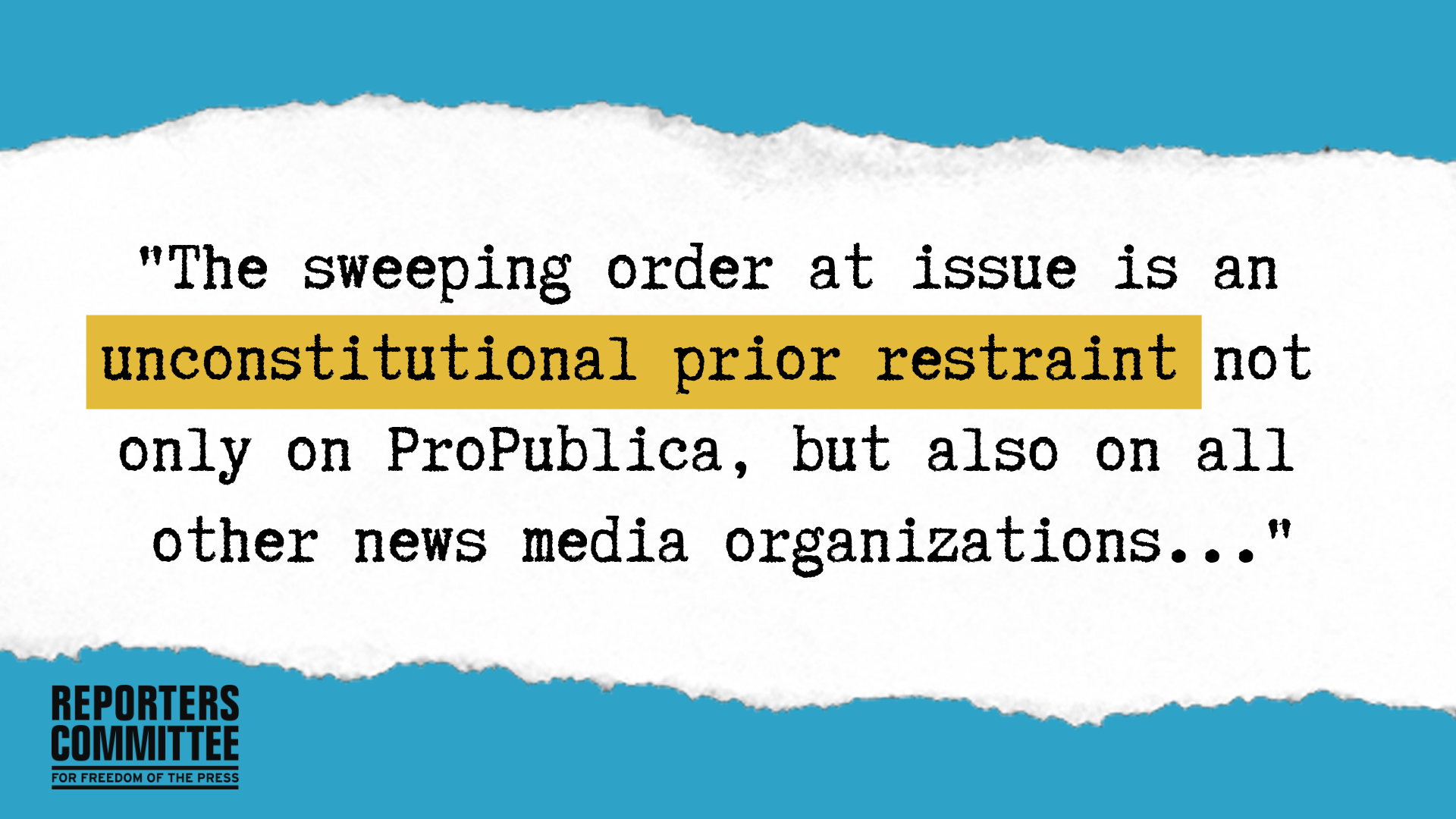40 media organizations argue against use of prior restraint on the press

A coalition of 40 media organizations, led by the Reporters Committee for Freedom of the Press, argued that a court order intended to protect minors interferes with the First Amendment rights of journalists.
Cook County Juvenile Court Judge Patricia Martin issued an order that banned ProPublica Illinois and other media outlets from publishing information — which ProPublica Illinois had already obtained — that identifies the minors and their foster parents in a child welfare case, effectively constituting a prior restraint.
The First Amendment significantly limits the ability of the government to impose prior restraints. ProPublica Illinois filed a petition to intervene and oppose the ruling, and on April 3, the media coalition filed a friend-of-the-court letter in support of its efforts.
“The sweeping order at issue is an unconstitutional prior restraint not only on ProPublica, but also on all other news media organizations,” the media coalition said. “Prior restraints are particularly oppressive because they prevent the restricted information from being heard or published at all and are therefore the most direct attack on the marketplace of ideas.”
In the letter, the media coalition requested that the court vacate the order and allow further court proceedings in the case to be open to the public. The media coalition said the U.S. Supreme Court, which has seen a number of prior restraint cases, has “without fail rejected all prior restraints on the press.”
ProPublica Illinois learned the minors’ names through what the media coalition calls “usual, lawful journalistic practices.” The friend-of-the-court letter said preventing the outlet from fully reporting on this welfare case could have a harmful effect on the public.
“Barring any disclosure of the information covered by this order hampers ProPublica’s ability to report on matters of significant public concern — namely, potential systemic failures in the Illinois child welfare system,” the media coalition said. The “potential revelation of sensitive information related to minors does not automatically create a state interest ‘of the highest order,’ such that a prior restraint would pass constitutional muster.”
Arguments on this court order are scheduled for April 5. View the letter.